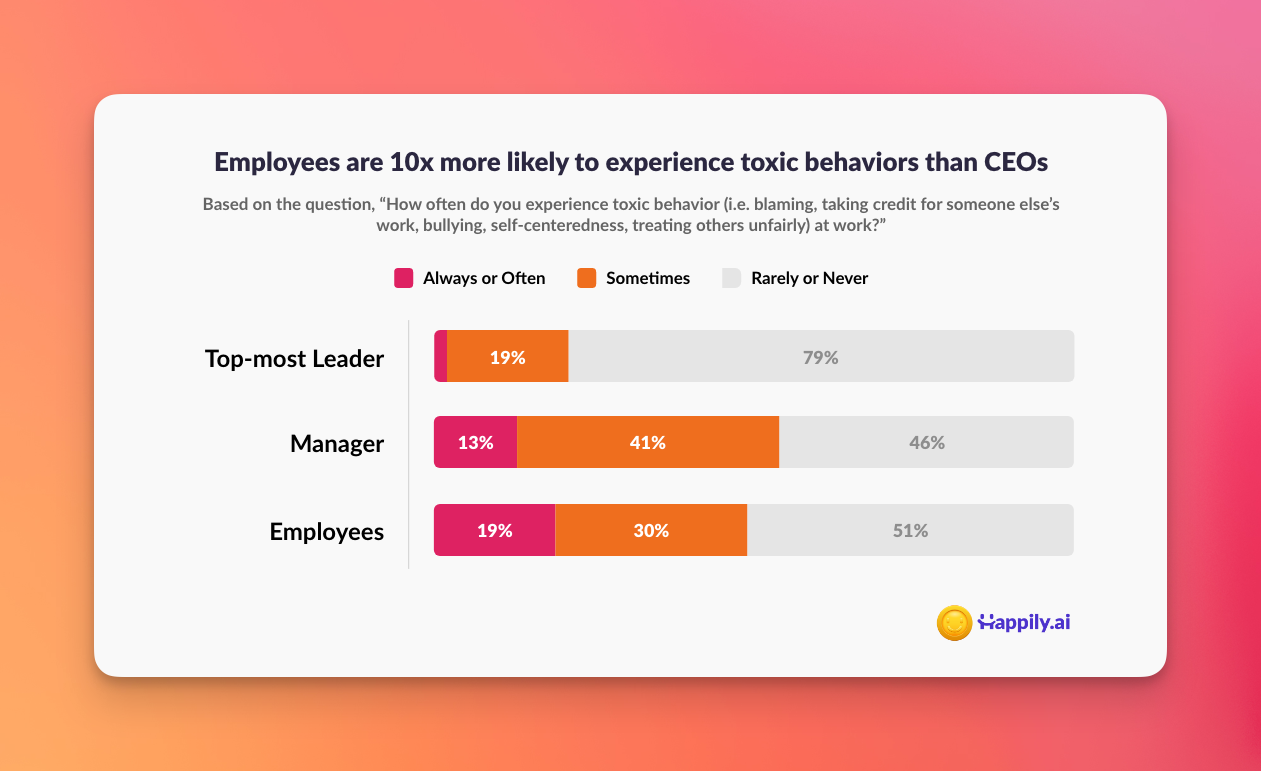Why Eliminating Negative Behaviors Matters More Than Adding Perks
Toxic behaviors like bullying, taking credit for others' work, blaming, and treating colleagues unfairly can poison a workplace culture. While many organizations focus their retention efforts on offering enticing perks and generous compensation, a recent study by MIT reveals a startling fact: negative behaviors are 10 times more likely to drive employees away compared to dissatisfaction with pay.
To understand the prevalence of this issue, we analyzed survey responses from 5,655 employees across all organizational levels. The results highlight a clear disconnect in how toxic behaviors are perceived and experienced.

At the top, CEOs and senior leaders seem largely insulated, with 79% reporting they rarely or never face toxic conduct. In stark contrast, 19% of frontline employees, nearly 1 in 5, say they frequently encounter hostility at work. Managers find themselves caught in the middle, with 54% either sometimes or often dealing with toxic behaviors.
These findings suggest that day-to-day realities faced by employees are often hidden from leadership's view. Toxicity festers in an organization's lower ranks even if rarely seen in the C-suite.
Managers are particularly susceptible, absorbing negativity from above and below. Pressure to deliver results while keeping teams motivated can be immense. Without proper support and training to address bad behaviors, managers risk burning out or adopting toxic habits themselves.
The bottom line is clear - no amount of free lunches or ping pong tables can compensate for allowing bullies and jerks to run amok. Preventing toxicity must be an active, organization-wide effort. Steps include:
- Defining clear standards of respectful conduct
- Empowering employees to speak up about bad behavior without fear of retaliation
- Training managers to spot warning signs and intervene skillfully
- Modeling healthy communication and conflict resolution from the top
- Consistently enforcing consequences for toxic conduct
By proactively eliminating toxic behaviors, companies create space for trust, psychological safety and positive interactions to flourish. Leadership must look beyond their immediate circles to assess the true cultural health of their organizations.
Happily.ai is an AI-powered toolkit that helps managers and HR drive top talent retention and team productivity. With features for hassle-free engagement, recognition, and performance management, Happily enables organizations to build thriving, toxicity-free cultures. To learn more, visit happily.ai.








